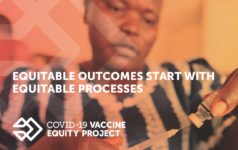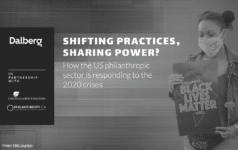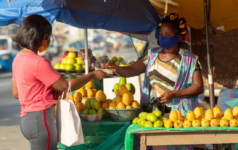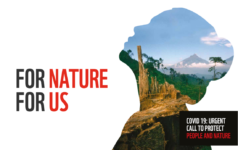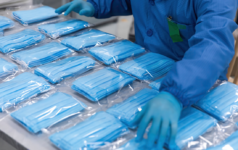Dalberg uses cookies and related technologies to improve the way the site functions. A cookie is a text file that is stored on your device. We use these text files for functionality such as to analyze our traffic or to personalize content. You can easily control how we use cookies on your device by adjusting the settings below, and you may also change those settings at any time by visiting our privacy policy page.
This article was originally published in the Business Times.
A thousand young people from over 110 countries are now in Singapore for UNLEASH Lab 2018.
They are in town not just to add another notch in the conference schedule for which this city is so favoured. Rather, they are spending eight days from May 30 to June 6 working in small teams to come up with new solutions to the planet’s sustainability challenge.
In the process, we believe they will demonstrate that, more than a conference venue, Singapore can be the Silicon Valley for incubating and growing solutions that address the United Nation’s Sustainable Development Goals (SDGs) we have set ourselves for 2030. The business opportunity is enormous – after all, the market size for the SDGs is the population of the entire planet.
A recent report by the Business and Sustainable Development Commission in Davos, covering four economic areas – food and agriculture, cities, energy and materials, and health and well-being – put the number at over US$12 trillion of new economic value to be created. Take water, for instance. Half the world’s population will live in water-stressed locations by 2025. Already, close to a billion people are consuming unsafe water – many of them are close neighbours of Singapore.
Singapore has world-class engineering capabilities and leading companies in water. By inviting the world here, companies and research labs in the city can co-create solutions that go well beyond the needs of a rich city. All of the SDGs have a large opportunity attached. Close to two billion people cannot access enough energy. By 2030, over 2.5 billion people will have uncorrected vision. The list of challenges is long.
To meet these challenges, we cannot simply rely on scaling up the solutions of today, which is often where investment is directed, but need a constant stream of new thinking that moves us collectively forward. In essence, this is the aim of UNLEASH, which is to scale up both solutions and solution providers. We select these solution providers from diverse backgrounds and aim to support them during and beyond their eight-day lab experience.
The inaugural edition was held in Denmark last year, and already a very motivated alumni of 1,000 participants has started to take their ideas to fruition. From technology-led solutions that look to steeply reduce plastic use in global packaging to new business models that are already expanding low-cost healthcare solutions in rural areas, many of the ideas were inspiring and some have attracted serious investment.
One of our talents has already had his health company valued at US$15 million by leading venture capitalists. Given our objective, it is important for the UNLEASH lab to be hosted in an ecosystem that can support creativity, diversity and globalism – everything that Singapore represents.
In fact, beyond our own innovation lab, we believe Singapore has all the ingredients to be a powerhouse in addressing the SDGs. Solutions to these large endemic challenges are unlikely to come from a distant technology valley that is focused on creating the next billion-dollar company overnight. We need an ecosystem that welcomes partnerships from around the world, that has the DNA of not only good business but also good governance and which is based close to the action of many of these challenges while still providing world-class facilities and talent to help innovators thrive.
Importantly, it needs to value diversity rather than just tolerate it. Just as Singapore reinvented itself from a manufacturing hub to a services economy, it has the ability to become an innovation-led economy that sees global challenges as its marketplace. Many companies and academic institutions are already leading the way in building a strong ecosystem for innovators and emerging social entrepreneurs.
Key partners of UNLEASH, such as DBS Bank, the National University of Singapore and Temasek Holdings are all pushing to make sustainability a core part of their DNA, and see such initiatives as a way to spark a broader movement of innovation for sustainability. UNLEASH has also been working with leading Singaporean companies such as Sembcorp and Keppel to identify important sustainability challenges for participants to attack.
We have 200 partners globally, with over 40 partners in Singapore alone, who are helping bring this diverse range of talents to Singapore and supporting their activities beyond. This momentum needs to continue and be scaled up. Platforms need to be built, collaborations cemented and funding established to put Singapore on the map as the go-to place for innovators motivated by solving large global sustainability challenges.
Much is already in place, it is now about connecting the dots. Singapore should no longer be a place where the world meets. It needs to be a place where the world comes to solve. UNLEASH Lab 2018 is just the beginning.










